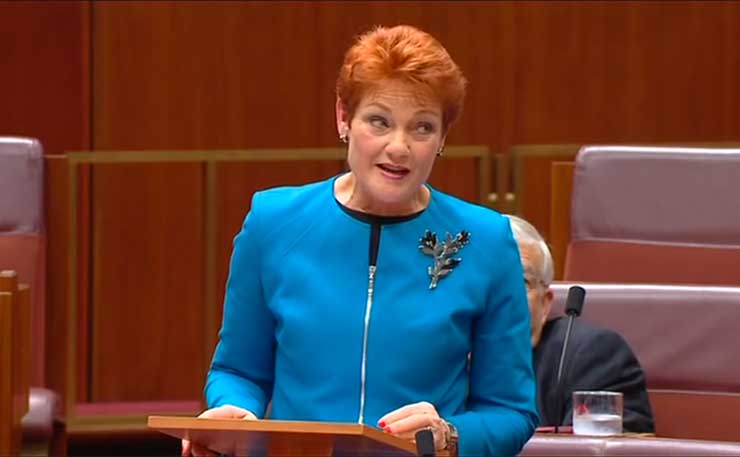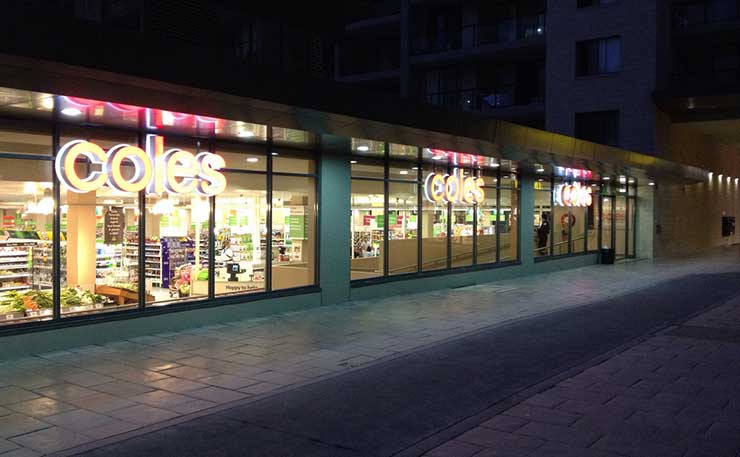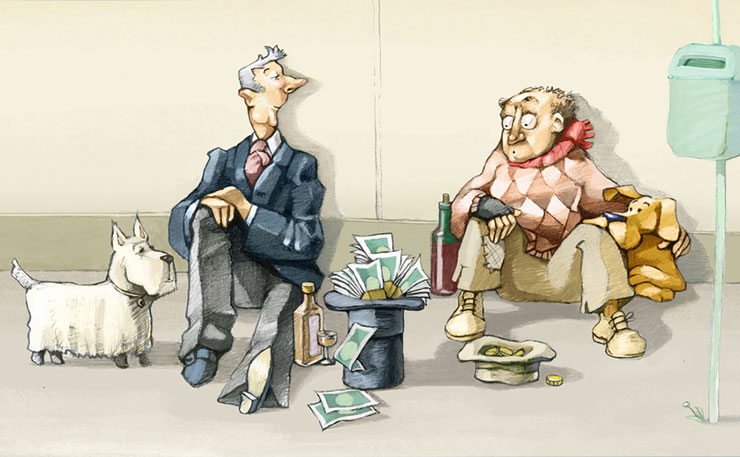The rich and powerful get richer and more powerful, while the poor get wild conspiracies about ‘the other’ being responsible for their lot in life. Senator Lee Rhiannon explains.
Historically it has been the progressive side of politics that has confronted racism in all its forms. Whether it was the oppression of Indigenous communities, abuse of refugees or more recently the Islamophobia fanned by some conservative politicians, it has been unions and left parties including the Greens that have taken the lead in exposing and confronting this abuse.
A key driver of racial abuse is the growing economic divide in our society. This is not to say that racism is unique to disadvantaged populations – we know too well that the elite do not hesitate to parade their bigotry. But when analysing and strategising on how to deal with racism we need measures to address economic inequality.
When people feel squeezed by things like low wages and the high cost of living, they understandably want to know who the villains are. Why can’t I find a decent job? Who is undercutting my wages?
Conservative politicians and their masters in big business implement policies that cause these problems because it suits their interests. But they can’t admit that because they’d be wiped out at the next election. Their solution? Scapegoat. Play on people’s apprehensions. Divide and distract.
This is part of the reason why some working people are turning to parties like One Nation. In the 2016 federal election there was a clear correlation between living in an area of high socio-economic disadvantage and voting for One Nation.

The irony is that One Nation’s track record in parliament has been to support the anti-worker and anti-poor polices of the Coalition Government. Pauline Hanson’s party sided with the Liberal-National government 74 per cent of the time between August and December 2016. They have provided the critical votes for the Turnbull government to pass legislation that robs money from public schools, opens the door to greater media concentration and cuts funding to welfare recipients.
To take on the racism building in Australian society we need to ensure that dealing with economic disadvantage is centre stage.
 That is not to say that someone’s identity as a person of colour doesn’t matter. In fact it’s a huge factor in how they are treated by politicians and bosses. In the workplace, it is clear that a person of colour will typically experience worse treatment by their employer, should they be successful in securing employment. When they go home from work, they are more likely to experience abuse in public. They are more likely to be discriminated against by the law.
That is not to say that someone’s identity as a person of colour doesn’t matter. In fact it’s a huge factor in how they are treated by politicians and bosses. In the workplace, it is clear that a person of colour will typically experience worse treatment by their employer, should they be successful in securing employment. When they go home from work, they are more likely to experience abuse in public. They are more likely to be discriminated against by the law.
This kind of racism and discrimination is not natural. It’s learned. It’s stirred by those in power. It only catches on because people are desperate for an explanation for why, despite their honest hard work, they can’t seem to keep their head above water.
You wouldn’t know it from mainstream media and popular culture, but working people and the poor – and disproportionately people of colour – are finding it increasingly difficult to meet basic human needs. Wage growth is slow in Australia, sometimes barely keeping up with inflation. In the March quarter this year wages accounted for only 46.2 per cent of total Gross Domestic Product – its lowest level since 1959. This means that a bigger share of the nation’s wealth is going to business, rather than workers.
Many working people, the unemployed and the underemployed face difficulties in meeting their basic needs. 1.3 million Australian households are in housing need. This is because renting is becoming increasingly unaffordable. On average, households are spending close to 30 per cent of their income on rent. People are spending more on health care. Home ownership is a dream that is out of reach for many people – not just the young. People on low incomes are having to work harder and pay more for their degrees and qualifications.

If you are a worker on a temporary visa you might be working in slave like conditions for labour hire contractors that supply food products to some of Australia’s biggest retailers such as Coles, Woolworths, Subway, Costco, IGA, KFC and Red Rooster. Many migrant workers are forced to live in subpar housing, grossly underpaid and sexually harassed. In some cases the conditions are so appalling that people have died from overwork, lack of food and medical care.
 Compare this with rising corporate profits. The National Australia Bank recently announced that its net profit for the 2017 year was $5.3 billion – at the same time as it announced it would cut 6,000 jobs over three years. Westpac’s profits for the same period were $8 billion. This is not the full story.
Compare this with rising corporate profits. The National Australia Bank recently announced that its net profit for the 2017 year was $5.3 billion – at the same time as it announced it would cut 6,000 jobs over three years. Westpac’s profits for the same period were $8 billion. This is not the full story.
As the release of the Panama Papers and Paradise Papers reveal, companies and wealthy individuals use complex schemes to shift money to overseas tax havens to avoid paying tax. Nearly 10 per cent of the world’s wealth is held offshore by a few individuals. The super-rich are syphoning off the wealth of the country instead of re-investing that revenue in jobs, education, infrastructure and health. The focus is on increasing the profits of business, rather than the living wages of the workers that create the means of that profit.
Racism suits the super-rich. This is a reality. To confront and take on the deplorable Islamophobia, bigotry and racism of the extreme right wing we need to remember that class still matters.
When migrants and refugees are scapegoated for supposedly taking jobs, when Muslims are ridiculed and attacked and when people of colour feel a growing sense of powerlessness, our progressive movement must act. We need to challenge this abuse and the lies with a broad and inclusive social movement against racism that links up with other campaigns that address in a meaningful way the struggles of working people.
We need to do more to show that the system that takes away manufacturing jobs while leaving it to the market to re-skill the unemployed is the same system that is killing migrant workers. Union campaigns to Change the Rules, protect penalty rates, win back the right to strike and expand union membership are all relevant to the campaign to take on racism.
Recognising this correlation and tying these campaigns together needs to be a priority for progressive politics.
Donate To New Matilda
New Matilda is a small, independent media outlet. We survive through reader contributions, and never losing a lawsuit. If you got something from this article, giving something back helps us to continue speaking truth to power. Every little bit counts.





